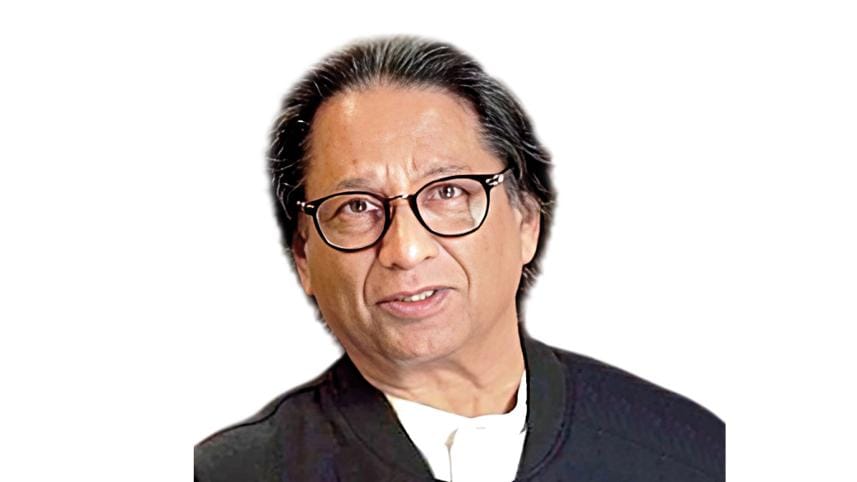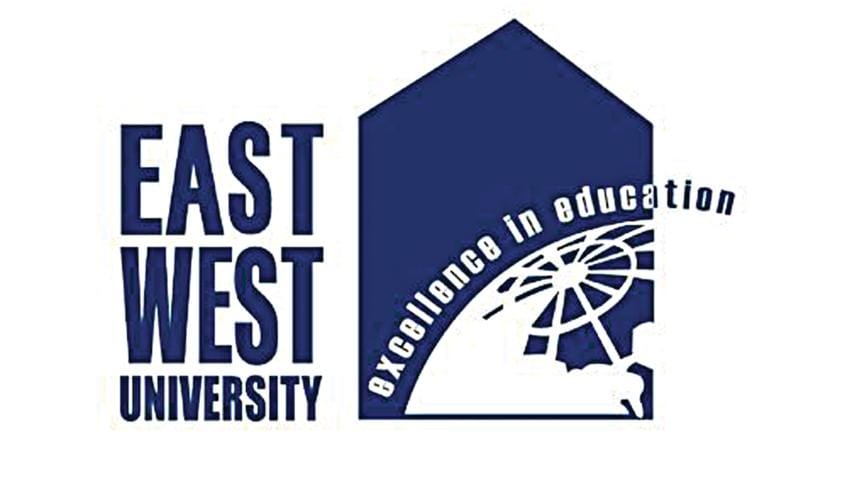Bridging academia with industry and global practices

Prof. DR. Shams Rahman
Vice Chancellor, East West University (EWU)
The Daily Star (TDS): What makes your university the ideal choice for prospective students?
Shams Rahman (SR): Ideally, a university is a place where knowledge should be created and exchanged. And that's exactly what East West University is dedicated to. More specifically, we are committed to academic excellence, an innovative learning environment, and a holistic approach to student development. We have a beautiful campus in an excellent location, in the heart of Dhaka city which makes it easy to commute to the campus. We have an exceptional faculty, as we believe the intellectual property they share in the classroom is critical for developing students' skills and competencies. All our labs are equipped with modern tools and research equipment, enabling hands-on training for students. We emphasize extracurricular and co-curricular activities through various clubs.
Students should consider this holistic package—classroom education and research, extracurricular activities, and outside-the-classroom engagements—as our university's key approach.

TDS: Please share details about the programs and courses tailored to equip students with the skills and knowledge necessary to excel in today's dynamic job market.
SR: We are aware of the changing global needs driven by technology and environmental concerns. Our programs are designed to incorporate technologies associated with Industry 4.0, and we are transitioning swiftly into Industry 5.0. Let me highlight some of the critical findings of the recent report by the World Economic Forum. According to this report, big data analytics, climate change, and cybersecurity are expected to be the biggest drivers of job growth. Analytical thinking and creative thinking will be the most important skills.
To address these issues, we carefully design our programs and courses to ensure our students are equipped with the skills and knowledge required to excel in today's fast-paced and ever-evolving job market. For instance, recently we have introduced a Data Science and Analytics program and are in the process of launching cutting-edge programs in Artificial Intelligence, Machine Learning, Cybersecurity, Environment and Climate Change, and a technology-oriented MBA. Our Civil Engineering program integrates technology into its curriculum, a specialization attractive to engineers seeking international opportunities, especially in the Middle East.
Our Business Department recently earned accreditation from the ACBSP, a prestigious North American accreditation body. Furthermore, we've signed MOUs with institutions like the Asian Institute of Technology, Macquarie University in Australia, and a U.S. university.
TDS: Could you tell us about the dynamics of your teaching staff?
SR: We have a clear strategy when it comes to recruiting and developing faculty members. For junior faculty—lecturers, senior lecturers, and assistant professors—we focus on recruiting fresh graduates with some experience. Our approach involves recruiting, retraining, and retaining them.
For senior faculty—associate professors and professors—we ensure their dedication to teaching, active involvement in research, and ability to take on leadership roles within the university. To retain them, we provide incentives such as research grants through our Center for Research and Training and additional financial benefits for publishing in top journals.
TDS: Can you tell us about the university's research facilities.
SR: Providing robust research facilities and nurturing research capabilities among academics are critical priorities for us. we encourage and motivate all our academics to apply for research grants, conduct research, and publish their findings. Last year alone, a commendable number of articles were published.
We are also working to build a research culture by introducing the concept of a "Research Day," which is new in Bangladesh. We fund student-led research, allowing master's and final-year students to publish in top journals.
TDS: How does the university nurture the inner potential of its students through extracurricular activities such as clubs, job fairs, and competitions?
SR: We have two entities dedicated to student development: the Department of Student Welfare and the Career Counseling Center, which helps with presentation skills, mock interviews, and CV writing. Our 21 active student clubs, including Photography and Debating, nurture leadership, teamwork, and negotiation, often leading to national-level victories and lifelong passions.
TDS: Could you provide an overview of tuition fees, scholarships, and waivers offered by the university, as well as other initiatives aimed at supporting students in achieving their academic goals?
SR: Our university is affordable for middle-class, upper-middle-class, and lower-middle-class families, offering various scholarships. These include merit-based scholarships, academic performance scholarships, Trustee Board Director and Medha Lalon scholarships, employee scholarships for children of university staff, and financial assistance for students facing hardship. We also offer a District Quota Scholarship for top students from each district. Recently, we awarded 10 full scholarships to female students from Gaza, covering both tuition and living expenses at the request of the Palestinian embassy.
In conclusion, I would like to highlight that when it comes to learning, teaching, research, and innovation, our approach is holistic, and our strategy is simple: 'inside out and outside in.' This means that what we teach and research on campus, we take to the industry, while also bringing knowledge from the industry into the classroom.



 For all latest news, follow The Daily Star's Google News channel.
For all latest news, follow The Daily Star's Google News channel.
Comments